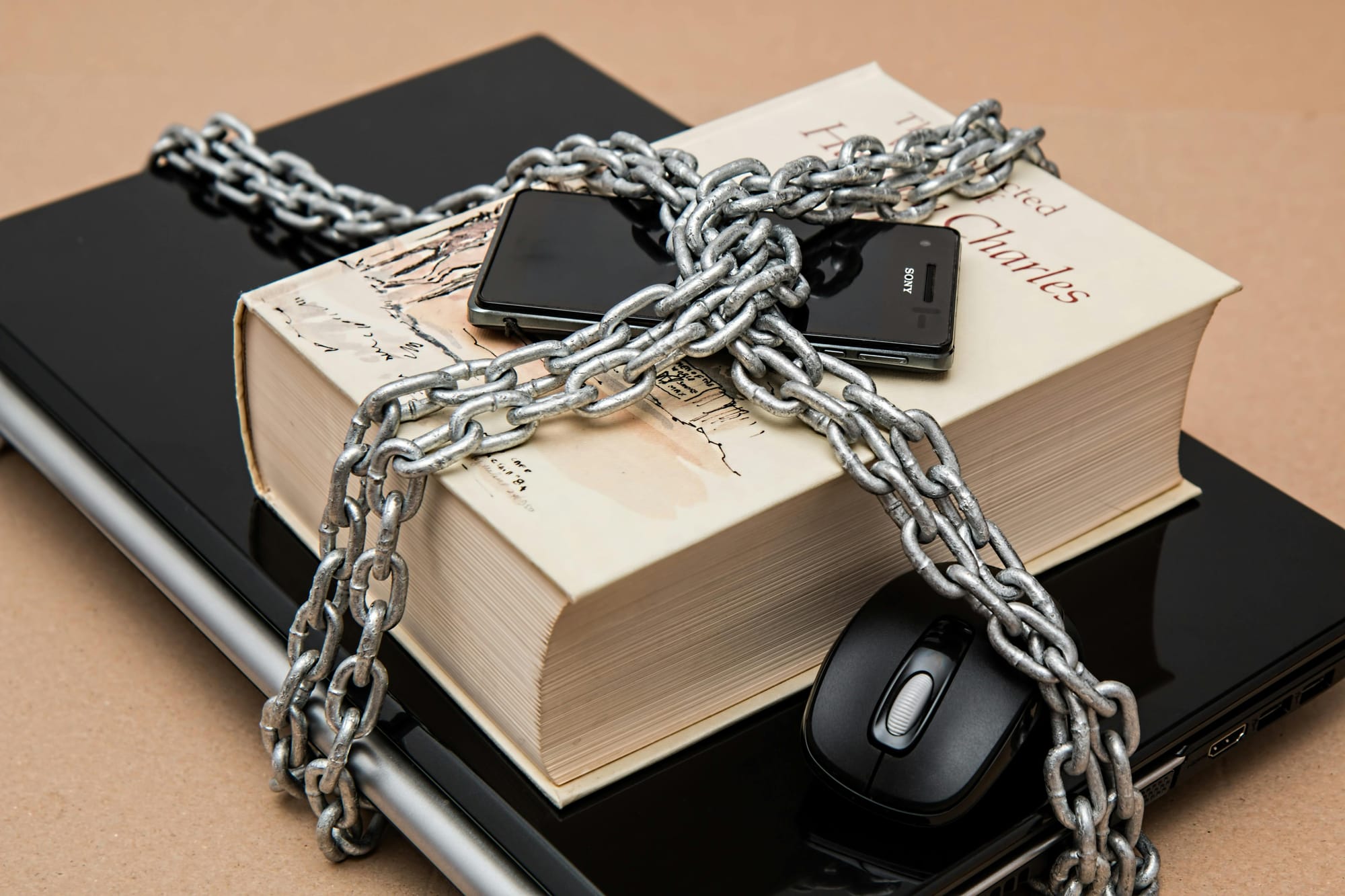People and companies use email a lot these days to stay in touch in this fast-paced digital world. Because of their daily email usage, many consumers and businesses use email disclaimers to avoid legal issues. What about the question we raised before? Are threats in emails legally binding? This blog post will explain in more depth what email disclaimers are for, what the law says about them, how useful they are, and how to write them well. Let us help you understand the complicated world of email disclaimers and the other choices you have in today's constantly changing legal landscape.
What is Email Disclaimers?
Email disclaimers are very helpful in this age of electronic communication. They are generally at the end of emails. Email disclaimers usually tell both the sender and the receiver what the law says about their rights, duties, and boundaries. To figure out what the legal effects of email disclaimers are, you need to know what they're for and how they work.
The goal of most email disclaimers is to:
- Set Up Privacy: Disclaimers often say that an email's content is private and only for the person who receives it. These steps ensure that we don't share or give private information to the wrong people.
- Limit Your Liability: Disclaimers may try to keep the writer from being responsible for any mistakes, omissions, or harm caused by the email's content. Most of the time, they make it clear that the writer is not to blame for any issues that arise from the use of the information.
- Protect Legal Rights: Email disclaimers can list the sender's legal rights, such as attorney-client protection or doctor-patient secrecy, to keep private messages private.
- Give Legal Notice: This is an official notice that you can use to tell someone what they can legally do with the email. This could mean that you can't send, copy, or forward the email to other people without permission.
- Following with Rules: Not all fields need email disclaimers to follow the rules and stay legal. For example, financial institutions might say that they give advice on investments or check the information they give is right.
- Stop a Contract Formation: Some disclaimers make it clear that the email does not intend to make a legally binding contract unless it says so.

Legal Effects of Email Disclaimers
Disclaimers in emails can have big legal effects that change based on the case and where they are used. We will look at how email disclaimers work in different places, how they have been used in court cases, and how well they protect both the sender and the user.
Where and How to Use Disclaimers in Emails
Email disclaimers may or may not be legal and useful in some places but not in others. In some countries, email disclaimers are okay, but not in others. In other countries, the law may have very strict rules or limits. Companies and people who work abroad need to know how the law changes from place to place.
There are a lot of important places where email disclaimers are used, such as the USA, the EU, Canada, Australia, and more. We will check to see if any laws, rules, or past court rulings could change whether email disclaimers are allowed here.
Court Cases Involving Email Disclaimers
Courts have looked at email disclaimers in many cases over the years. We can learn a lot from these cases about how courts read and use email disclaimers in different types of legal cases, such as data breaches, contract disputes, and claims of carelessness.
We will now look at some important court cases that have to do with email disclosures. We'll talk about the arguments, the court's ruling, and what it means for cases in the future. The cases we'll look at will help us understand how important email disclaimers are to the law and what makes them effective.
What’s Good About Email Disclaimers
Email disclaimers are common, but it's not always clear how well they keep both the sender and the receiver out of trouble with the law. We'll look at how well email disclaimers work in some different scenarios now.
What determines if disclaimers are enforceable? Some of the things we will look at are how clear and noticeable they are, how well the recipient knows them, and any applicable business rules. We'll also talk about times when email disclaimers might not work, such as when someone is blatantly careless, intentionally bad, or breaking the law.
People and companies can decide if they should use email disclaimers and set up the right risk management strategies if they know how they affect the law and how useful they are. After this, we'll talk about how to write a good email disclaimer, including what you should include and what you should not do.

How to Write an Effective Email Disclaimer
Writing a good email message is very important to make sure it does its job and keeps you safe legally. The most important parts of an email disclaimer, the most common mistakes you should avoid, and some good disclaimers will be talked about next.
Tips for Writing a Good Email Disclaimer
- Simple and Clear Language: Don't use words that aren't clear or that there are different ways to understand them. Make sure the message is very clear about what it means and what it doesn't cover.
- Statement of Confidentiality: Make it clear that the content of the email is private and that the recipient is responsible for keeping it private.
- Important Legal Notice: Make it clear if the text of the email gives you any legal rights, duties, or boundaries. This could mean you can't send, copy, or forward the email to other people without their permission.
- Putting Limits on Liability: Write down any limits on your duty for mistakes, omissions, or harms caused by the email's content. This might help the sender stay out of trouble with the government.
- Responsibility Disclaimer: The author is not responsible for any issues that may arise when you use the information in the email.
- The Law That Applies: Describe the rules and areas that the email disclaimers are based on. This is very important when you want to talk to people from other places.
Common Mistakes in Writing Email Disclaimers
- Long and Difficult Words: Don't use words or phrases that are too hard to understand or that are too long. They could confuse people or weaken your message. The message should be short and to the point.
- Adding Details That Aren't Necessary: Make sure the notice only has the important and necessary details. The disclaimer might not be as strong if you add too many disconnected comments.
- Failure to Update: Check and update the email disclaimers often to make sure it is always correct and up to date. Disclaimers that are too old may not keep you safe enough.
- Lack of Attention: Make sure the email disclaimer is easy to see by putting it somewhere that people can see it, like at the start or end of the message.
Examples of Effective Email Disclaimers
That will help you understand what a good email disclaimer should look like:
- "This email and its attachments may have private and sensitive information in them. If you are not the intended receiver, please delete the email right away and let the sender know. You may not use, copy, or send this email to other people without permission."
- "Please note that this email serves as only informative information and should not be considered as legal advice. If someone uses this knowledge and bad things happen because of it, it is not our responsibility. For legal advice that is special to your case, please talk to a qualified professional."
- "This email is intended for the person listed above, and it may contain private information. Please delete this email right away and let the writer know if you received it by mistake. You are strictly forbidden from using, copying, or sharing this email without permission."
- "People and businesses can write email disclaimers that are clear, safe, and legally binding if they avoid these common mistakes and include these important parts. In the next section, we'll look at some other ways to protect private messages and information besides email disclaimers."

Other Options Besides Email Disclaimers
Most often, people use email disclaimers to protect private information and follow the law. There are, however, other tools and ways to make privacy and protection better. This part will talk about some different ways that people and companies can use email disclaimers.
Using Confidentiality Agreements
An NDA, which is another name for a confidentiality agreement, is a written contract that two parties use to keep information secret. As long as you follow the rules in these agreements, you can share and use private information. When people and businesses use confidentiality agreements. They can protect themselves legally and have more say over how sensitive information is treated.
Secure Email Systems
Secure email systems do more to keep your private information safe when you send it through email. Most of the time, encryption technologies in these systems keep the text of emails safe. Other people shouldn't be there, so this makes it harder for them to read or get the information. Secure email systems ensure that people and businesses can keep their emails private and prevent leaks.
Extra Safety Steps and Encryption
There are several ways to keep private information safe, such as using secure email and encryption data. Email security ensures that only authorized readers can read it. This helps keep people out who aren't supposed to be there and keeps the information safe.
You can take more safety and privacy steps with email than just using two-factor authentication, secure file transfer protocols (SFTP), and secure cloud storage options. Along with email disclaimers, these other methods and technologies can help people and companies better protect private information and communications.
We will talk about how laws and rules affect email disclaimers after you read this. We will talk about privacy and data security laws, as well as the General Data Protection Regulation (GDPR) and other international laws.

Email Disclaimer Laws and Regulations
A lot of the laws and rules that govern how emails can be shared are made by lawmakers and officials. Now we'll talk about how privacy and data security laws affect email disclaimers. We will also discuss the GDPR and other foreign legislation and how to comply.
Data Protection and Privacy Laws
Some rules say how to send, use, store, and gather private data. The privacy and rights of people are protected by these rules, which also tell businesses how to handle private data.
When email is used to collect and use personal information, data protection and privacy rules may say that only certain kinds of information can be shared or that people must give permission in a certain way. For email disclaimers, this is very important. Each country's data security and privacy laws say what businesses can and cannot say in their emails.
Rules and Regulations That Must Be Followed
There are rules about how to write and use email disclaimers if you work in healthcare, banks, or the law. You may need to follow strict rules to protect information, keep records, or not share specific data. If your business is in a controlled field, you need to make sure that your email disclaimers follow the rules set by those regulatory bodies.
Effects of GDPR and Other International Laws
The General Data Protection Regulation (GDPR) changed a lot about how data is kept safe in the EU. It even changed how data is kept safe in email. This is because of the GDPR. There are strict rules about how to handle and send sensitive data. To give people more space, that was the goal.
When sending email disclaimers to EU residents, companies have to follow the GDPR. To do this, you may need to inform people of the legal justification for processing their personal data, get clear permission for certain processing activities, and make data security rights easier to use.
Laws about data security that affect email have been passed in other places besides the GDPR. Business owners must respect local laws in their email campaigns. Moreover, laws and rules affect how emails are shared. Knowing this helps people and businesses follow the law, safeguard data privacy, and reduce legal risks.
To sum up, email disclaimers are a very important way to protect private information and follow the law. Some laws protect email disclaimers, but only if the sender and user write and use them correctly. You could use confidentiality agreements or safe email sites instead, though, if you want more privacy and safety. It's also very important to follow all the laws and rules. Data security and privacy rules must be strong to make email disclaimers legal and respect privacy rights. Know about updated email regulations so people and companies can use it legally and get what they want.

